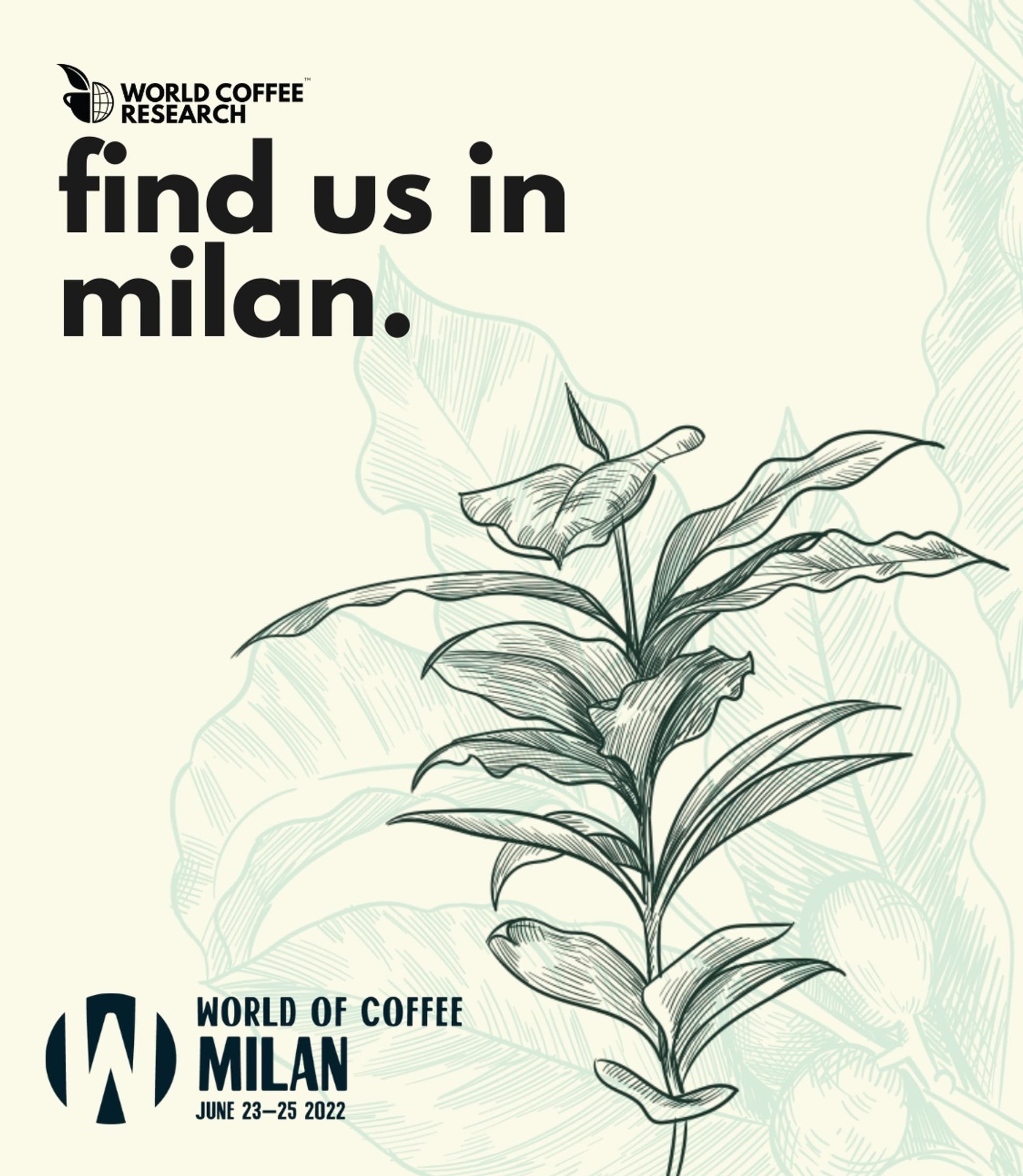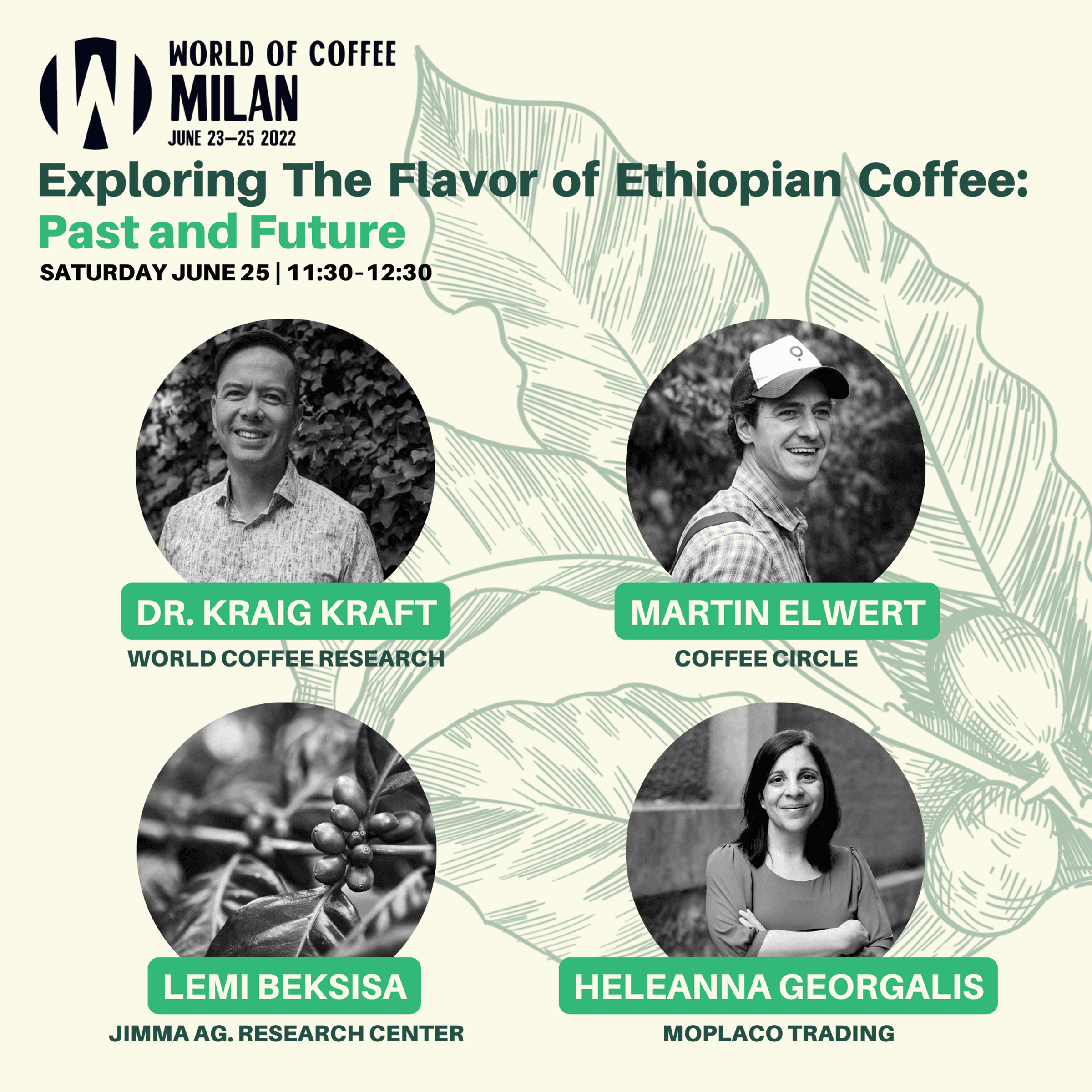Where To Find Us in Milan at World of Coffee 2022
Talks on coffee quality and flavor at the event’s in-person return

Assuring quality in the varieties of tomorrow
Dr. Kraig Kraft, Asia and Africa Director, World Coffee Research
Friday, June 24, 2022, 10:15–11:15 a.m.
Room 2, SCA Education Hub, Ground Floor, South Hall
In 2022, World Coffee Research is continuing numerous experiments to assess the quality of different varieties and breeding materials from around the world. Last year, over 100 industry cuppers from nearly as many coffee companies participated. In the process, researchers are also exploring a critical gap in coffee science—how to understand, define, and measure “quality” when it comes to the creation of new varieties.
In this lecture, Dr. Kraft will present some preliminary results of WCR’s cupping experiments from 3 networks of trials (31 international varieties growing in 17 countries, 15 experimental F1 hybrid candidates in Central america, and 97 wild C. arabica accessions); an ongoing experiment to investigate the relationship between quality perception, economic value, and green coffee chemistry, using 150 commercial coffee samples; and efforts to build bridges between producing country breeding programs and industry tasters and buyers.

Exploring the flavor of Ethiopian coffee–past and future
Dr. Kraig Kraft, Asia and Africa Director, World Coffee Research
Lemi Beksisa, Leader, Coffee Research Program, Jimma Agricultural Research Center (JARC)
Martin Elwert, Chief Executive Officer, Coffee Circle
Heleanna Georgalis, President, Moplaco Trading
Saturday, June 25, 2022, 11:30 a.m.–12:30 p.m.
Room 2, SCA Education Hub, Ground Floor, South Hall
Ethiopia is known for its center of origin and unique coffee flavor. In this panel discussion, WCR will moderate a discussion from different points of view on the future of flavor for Ethiopian coffees—the country where the flavor of coffee in each coffee producing zone is different from one another.
From the market standpoint, panelists will look at how Ethiopian coffees are currently marketed, specifically the regional profiles that have been developed and firmly established in consumers’ minds. From the research viewpoint, panelists will examine the challenges for scientists to address problems like yield, pests, diseases, and climate change. New, modernized breeding techniques make it possible to create product profiles, but risk homogenizing flavor in the process. Panelists will discuss this natural tension and potential ways forward to meet and expand market demand for Ethiopian coffees.